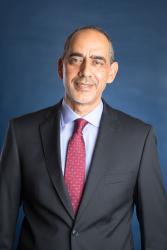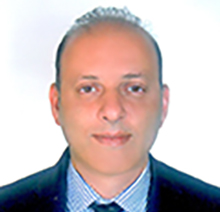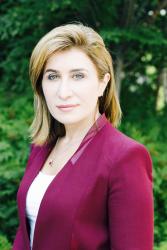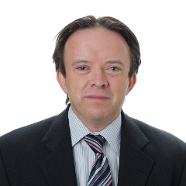

Past Event
Content from the Brookings Doha Center is now archived. In September 2021, after 14 years of impactful partnership, Brookings and the Brookings Doha Center announced that they were ending their affiliation. The Brookings Doha Center is now the Middle East Council on Global Affairs, a separate public policy institution based in Qatar.
The Brookings Doha Center (BDC) hosted a webinar discussion on September 17, 2020 on the economic impact of COVID-19 on the Middle East. Panelists focused on how Gulf states have fared, poverty region wide, and finally the importance of public trust in allowing for an effective government response. The panel consisted of a group of distinguished scholars and experts, including: Tim Callen, chief of the Gulf Cooperation Council (GCC) division at the Middle East and Central Asia department of the International Monetary Fund; Khalid Abu-Ismail, senior economist at the United Nations Economic and Social Commission for Western Asia; and Bessma Momani, professor of political science at the University of Waterloo. Tarik M. Yousef, director of the BDC, moderated the event.
Tim Callen opened the discussion by highlighting the volatility of the oil market, on which GCC countries have been highly dependent. Firstly, he noted that major changes had begun to emerge in the oil market in 2014 and there was talk about a peak in demand. Such changes impacted the prior dynamic in GCC countries, where they had used high oil revenues to increase growth within non-oil sectors. The pandemic has only deepened this impact. Moreover, Callen noted that Gulf states have carried out substantial reforms since the pandemic’s beginning and that not enough credit was given to governments for their effective responses. In moving forward, he stated that we are beginning to see a gradual rebound of the economy, yet, at least for the GCC region, it will not offset this year’s gross domestic product loss. Finally, he contended that boosting productivity will be the key to diversification and generating self-sustaining private sector growth, in addition, that countries should tailor their economic responses to target the most vulnerable sectors.
Khalid Abu-Ismail then spoke on inequality, poverty, and development in the region. Firstly, he contended that the pandemic has exacerbated the rise in poverty that we had begun to see in 2010. Indeed, since 2010, while human development indicators have continued to improve in some countries, conflict has impacted many others. Thus, a gap has emerged in which least developed countries and countries in conflict lag behind middle income countries as well as those rich in oil. Besides this gap, the Arab region is the only one worldwide where money metric poverty has increased regardless of how it is measured. This, Abu-Ismail stated, was the situation going into 2020 and the pandemic has only worsened circumstances. Growth rates are projected to decline by as much as five percent region wide on a per capita basis and six million jobs are assumed to have been lost. Yet, these are regional statistics and each country has been impacted uniquely. Lebanon, for instance, has been hit hard due to its difficult political situation. Furthermore, Abu-Ismail noted that a lack of data makes it difficult to assess the impact of economic recovery policies. However, it is clear that for most middle income countries, decades of fiscal reforms and liberal economic policies have in part created an economic system ill-equipped to provide institutional social protection.
Bessma Momani mentioned the need to bolster public trust in the region. The professor contended that a country’s economic recovery is dependent on how well it manages the public health crisis, and an effective health strategy demands high levels of public trust. Indeed, civilians must have confidence in their leaders if they are to follow proper health guidelines stipulated by them. Unfortunately, Momani stated that across the Middle East levels of public trust are low. Furthermore, the professor expressed doubts that governments are doing all that they can to manage this crisis. On this note, she stated that it is not solely a matter of calling for a lockdown, but providing civilians the economic support that they need to forgo work. This presents a significant financial cost that some governments have been unwilling to incur. Finally, Momani noted her disappointment in many Middle Eastern countries for continuing to invest significantly in the military. She stressed that rather these large sums should be put into investing in public health and trust, as well as recovering the economy. Indeed, the professor recommended that Middle Eastern countries make investments that will improve society in the long term. Specifically, she encouraged spending in the sectors of technology, education, renewable energy, and agriculture.
In the subsequent question and answer session, panelists focused on small and medium-sized enterprises (SMEs), diversification and expat workers in the Gulf, and public discontent. Firstly, Abu-Ismail recommended that countries design fiscal stimulus packages so that they support SMEs. He stressed the need to stop the drain from the formal private sector into the informal sector, and to increase productivity and expert competitiveness of firms. Callen spoke on the status of the expat community following this crisis in the GCC countries. He noted that most expats have not returned to their sending countries and that there is a lack of information regarding their situation in the host countries. Callen also noted that among GCC states we do not have a good example of one that has successfully diversified. Finally, Momani spoke on the matter of public discontent. She stated that the virus is dissuading people from protesting and that a lack of demonstrations does not mean that public satisfaction is high.





Pedro Conceição
April 3, 2024

Homi Kharas, Charlotte Rivard
April 2, 2024

Kevin Dong, Mallie Prytherch, Lily McElwee, Patricia M. Kim, Jude Blanchette, Ryan Hass
March 15, 2024